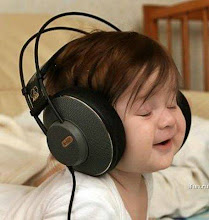What's the Big Idea?
I’ve got another memory involving Mark and music.Like I said before, my brother and I are very different types of people. I said I never did anything wrong as a kid and I meant it. (Now, I realize that there are sins of omission, but that’s a wholenotherthing.) But I can remember one moment where our differences didn’t keep us apart. It turns out Mark wasn’t a total “rawk” purist; he also had a softer, sensitive side.
I’m interested in perspective changes that come about with exposure to different kinds of music and I was still just a little kid when I had my second lesson in musical aesthetics; the soundtrack was Pink Floyd’s The Wall.
I have this indelible memory of Mark and I hanging out in his bedroom one afternoon, a rarity since we were so far apart in age. His room always smelled like a sweet mix of stale cigarette smoke and some awful green cologne, maybe Brut. I can remember lying next to him listening to The Wall, while he repeated lines from the songs to give them special emphasis, as if they were profound or poetic. And all around me there were these strange sounds like cars rushing by and people knocking on doors and dramatic sections and strings and a rock band. It really sounded like a movie without pictures to me. Even though it sounded a little scary, and it had to be bad for me if Mark was listening to it, I was intrigued. And the tape case had these strange cartoon drawings on it!
So, what was it about The Wall that was so new, so interesting to me? I think it was designed for people about 10-15 years older than I was at the time-someone like Mark, who hated school and authority. Those were the kinds of people who would get anything out of lyrics like “We don’t need no education” and a story line of a rocker’s descent into madness and building some kind of psychological wall up between himself and other people. Obviously, that’s all lost on an 8 year old kid.
But what I took from it was the idea of rock music as some kind of art. Some kind of epic, extended story that’s trying to say something important. For some reason, that appealed to me as a curious little kid just as much as Eddie Van Halen’s crazy virtuosity. This was obviously rock n’ roll, the guitars were dirty-sounding, the drums were pretty loud, but it was much bigger than anything I had ever heard before. It was a dichotomy. (I said that to myself as a little kid-“This Pink Floyd music is a dichotomy between important art and rock n’ roll, performed by regular guys.) That’s not true, I didn’t know the word dichotomy and I know now that Pink Floyd weren’t “regular guys.” For one thing, they were English and everybody knows there’s no such thing as a regular English guy. For another thing, Roger Waters had a pretty messed-up psychology, God help him. And above all, they were artists.
But all this belies one of my secrets-that I believe rock n’ roll can be art, not just rebellious devil-music. I’ve always felt uncomfortable when critics pigeonhole rock music as strictly a music of rebellion. They always cite the likes of early rock n’ roll and they probably hold Iggy Pop as their savior. While I have no problems with basic, no- frills rock, I wouldn’t dare claim that as the only way to go about expressing one’s self with a guitar and drums. I obviously decided fairly early on that rock could come from the head and heart as well as from the crotch.
So the time was 1979 when The Wall came out. One year after Van Halen’s debut, a couple years after the Brits learned about punk music and here we have this anti-punk mixed into the stew. So I look back and I see that The Wall is pretty much musical theater. When the Floyd played these songs live, it was an “event”-stage dressing, the whole album played as one “piece” and they actually built a wall between themselves and the audience during the show. These are “big ideas,” not just “a bunch of catchy songs that we wrote.”
Another nice element you get with this album is the contrast of singers’ voices. Roger Waters’ voice just sounds like a crazy man-nasal and very rarely even singing, more like dramatic acting-talk or Sprechstimme, to put it in classical terms. But then you have David Gilmour’s buttery voice: mannered and constant and soothing. It was only recently, with their reunion performance at Live 8, that I realized just how special his voice is. “Comfortably Numb” is a terrific song that captures what I’m talking about, but it’s really all over the album. Gilmour is almost literally the calm voice of reason to the drug-crazed paranoia of Waters.
I thought, on that day listening with my eldest brother, that I had just heard something “really important,” (and I realize in the grand scheme of things today, a silly album by a silly band is not “really important.”) But I think, as an appreciator of popular music, that we could use some more “big ideas” pulled off so well.


0 Comments:
Post a Comment
<< Home